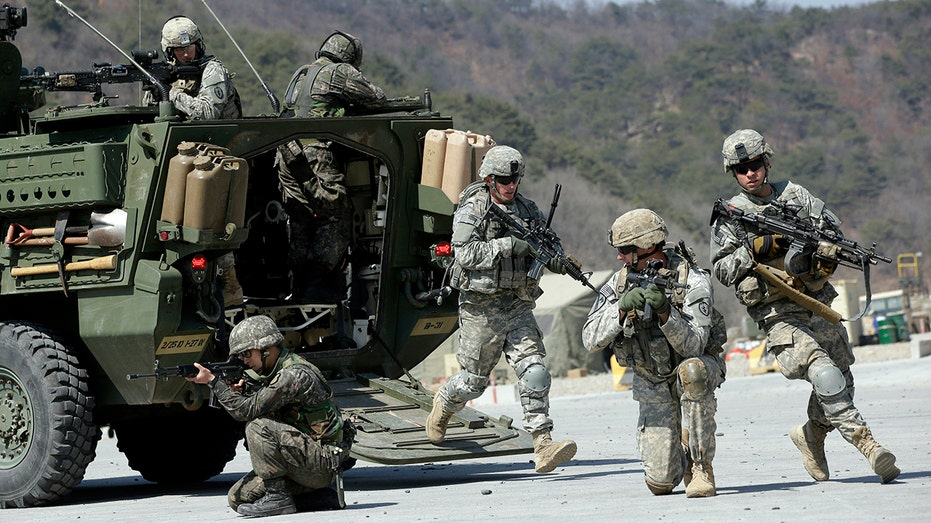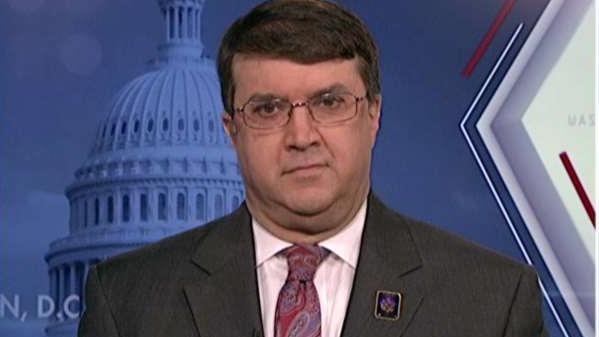PenFed's James Schenck: Veterans Day salute — What the military taught me about completing the mission
Five important leadership lessons I learned in the Army.
I grew up in a military family. My father, a Marine, was injured by a grenade while serving in Korea, and he lived the rest of his life with shrapnel in his legs. Although he always carried the remnants of war in his body, it was his service to his country and the positive leadership skills he took away from his military service that fueled my passion to serve my nation in uniform.
After attending West Point, I served my nation for thirteen years flying Blackhawk Helicopters for the Army and leading America’s sons and daughters as part of the units in which I served.
When I transitioned out of the military and into the corporate world, I took with me these five important leadership lessons.
EVERY person on the team has value.
Each person on a team brings a unique skill set to the unit and contributes to shared mission accomplishment. It didn’t matter how tall someone was, the color of their skin, their gender, their social status, or where they came from. What mattered was their ability to execute their respective skill set, their attitude and their absolute commitment to their fellow teammates to help the team accomplish its mission.
It’s the same in business. Every person on the team contributes in his or her unique and invaluable way to the shared purpose and success of the business.
Planning and training is the key to successful execution.

FILE - In this March 25, 2015, file photo, U.S. Army soldiers from the 25th Infantry Division's 2nd Stryker Brigade Combat Team and South Korean soldiers take their position during a demonstration of the combined arms live-fire exercise as a part of (AP)
Flawless execution can only happen with thorough planning and repeated training. Planning for possible risk scenarios and putting together Plan B’s and C’s will keep your purpose at the forefront and keep you and your team focused and able to adjust to a fluid and rapidly changing external environment.
GET FOX BUSINESS ON THE GO BY CLICKING HERE
When I was an Army pilot, I trained endlessly. We ran through scenario after scenario, in the simulator and in real-life training. I spent so much time memorizing emergency checklists that I could recite them in my sleep.
Years later, when 9/11 occurred, we could see the smoke rising from the Pentagon from PenFed’s headquarters. We had a branch inside the Pentagon, and we didn’t know if the staff was OK. Within minutes, I put together a team to walk the eight miles to the Pentagon so we could locate our employees and ensure the safety and accountability of each of them.
I had learned years earlier the first step in any accident was to secure the crash site and to render aid as required. I would never have been able to immediately react, head towards the Pentagon and remain calm had it not been from my prior planning, preparation and rehearsals during military training.
The same applies to reacting to various business scenarios through table top exercises, developing alternate plans and rehearsing and working through them with one’s employees.
The nine principles of war don’t just apply to war.
Studying the nine principles of war – objective, offensive, mass, economy of force, maneuver, unity of command, security, surprise, and simplicity – can be very helpful for business leaders.
For example, mass doesn’t just mean concentrating combat forces where they’ll have the greatest effect. It means concentrating resources – including money, time and personnel – where they’ll matter most.
CLICK HERE TO READ MORE ON FOX BUSINESS
Economy of force – using power in the most judicious way – also means saving dollars by not doing things that don’t accomplish the bigger mission.
Give back to your community.
It’s important to have a philanthropic purpose in business, not just a profit purpose.
When I was in the military, I had a community of people who supported me – family, friends, mentors and fellow service members. Our military bases and the surrounding communities worked together to support one another. The genuine care between the base leadership and the local community leadership was genuine and in working together the base and local communities were stronger together.
LT GEN MICHAEL FERRITER: WHAT MILLENNIAL VETERANS CAN BRING TO YOUR COMPANY
The example I witnessed during my service across multiple military bases built the foundation of my current corporate support of annually donating 2 percent of all net income back into the communities in which we serve.
Corporate leaders working with community leaders make vibrant, safe and prosperous communities across America. Again, a lesson I learned from my time in the military.
Learn from the hard times.

The journey in business, like in life, is rarely easy. But difficulties that you think are pulling you away from your purpose can actually help shape it.
When I was in my last year at West Point, my father passed away. My father had always been the person I’d turned to when things were hard. But I challenged myself to find new support networks – friends, professors and mentors – and I ended up graduating as a distinguished cadet.
Studies have found that people who adopt positive mindsets instead of focusing on past failures or loss are more likely to succeed. If we use obstacles as an opportunity to find a new way of doing things, we can all find and achieve greater success.
James R. Schenck is president and CEO of PenFed Credit Union and CEO of the PenFed Foundation. PenFed is federally insured by NCUA.




















